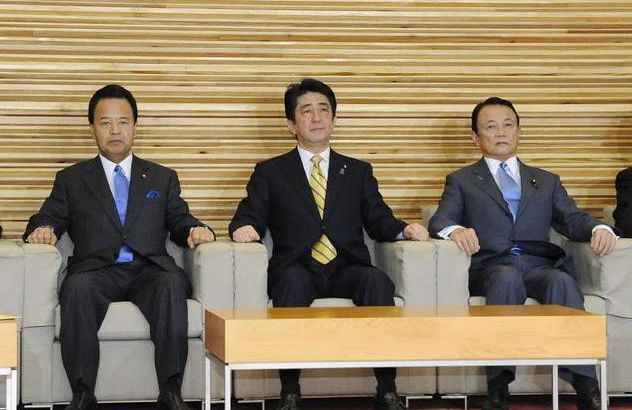Japan PM dissolves lower house of parliament
Snap election expected in December as Shinzo Abe seeks fresh mandate for his struggling economic revival strategy.

Prime Minister Shinzo Abe has dissolved the Japanese parliament’s lower house for a snap election expected on December 14.
Abe is seeking a fresh mandate for his struggling “Abenomics” revival strategy just two years after he returned to power promising that “Japan is Back”.
Keep reading
list of 4 itemsKey takeaways from Xi Jinping’s Europe trip
When will EVs become mainstream in the US?
Key takeaways from Xi Jinping’s European tour to France, Serbia and Hungary
He had vowed to revive the economy with a mix of hyper-easy monetary policy, government spending and reforms, while moving ahead with plans to rein in Japan’s massive public debt.
But doubts have grown about his strategy, especially after data showed this week that the economy had surprisingly slipped into recession in the third quarter after an initial rise in the sales tax to 8 percent from April.
Abe has said he would delay for 18 months a second tax hike to 10 percent that had been slated for October 2015. He pledged that the second increase, which advocates say is needed to fund the bulging social security costs of a fast-ageing population, would go ahead in April 2017.
Grip on power
Japan will not hold a general election until late 2016, but Abe hopes to cement his grip on power before his support ratings slip too far. Next year, he plans to tackle unpopular policies such as restarting reactors that went off-line after the 2011 Fukushima nuclear crisis.
An Asahi newspaper poll published on Friday showed Abe’s support fell to 39 percent – the lowest since he took office in December 2012 – and just a bit more than the 40 percent who do not back him.
Still, 37 percent said they would vote for Abe’s Liberal Democratic Party (LDP) in proportional representation districts, compared to 13 percent who planned to vote for the main opposition Democratic Party of Japan (DPJ).
Thirty percent were undecided.